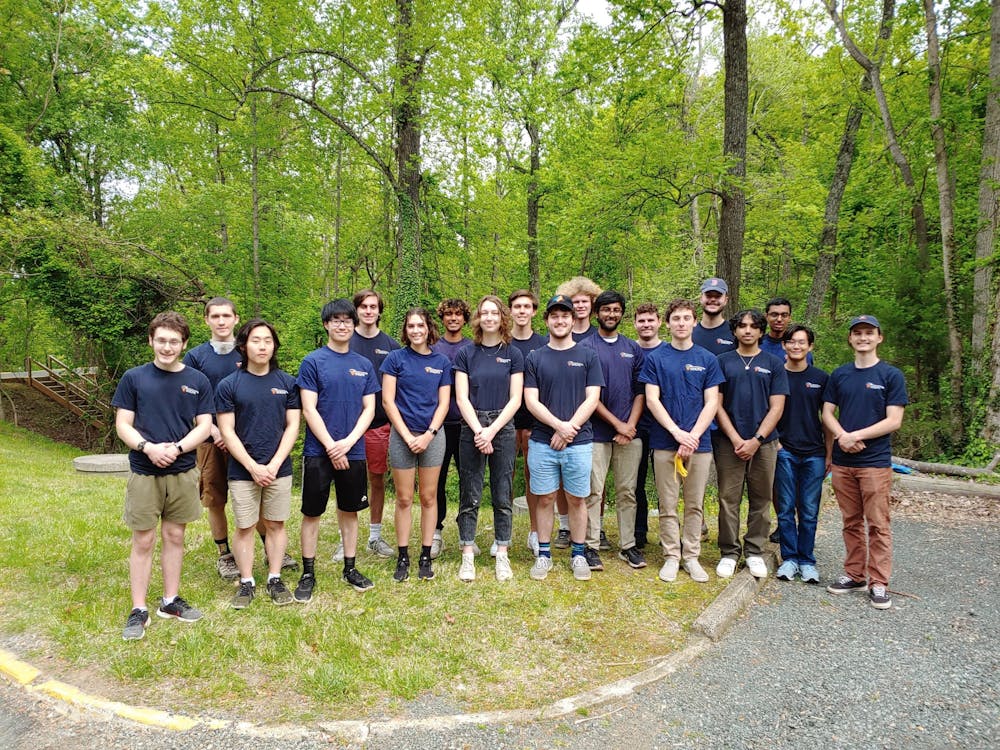For the first time in its 20-year history, the U.Va. Solar Car team will compete in an endurance race at the Formula Sun Grand Prix. The team will travel to Topeka, Kan. July 5 to race a new solar car that has been two years in the making. Over a three-day period, they will attempt to complete the most laps around the course while competing against other universities’ solar cars.
Solar cars are drivable, electric vehicles that are completely powered by the sun. Building a solar car from the ground up is no small task — constructing one requires careful coordination of design work, electrical engineering and structural assembly.
For Nicky Palmer, solar lead of U.Va. Solar Car and rising fourth-year Engineering student, racing the car this summer marks the culmination of the team’s hard work.
“I think the car is mostly ready [for the race],” Palmer said. “All the pieces are there. We just need to put them together and make sure everything works properly. This is a really exciting step in a long process.”
A major key to the development of this car was the team’s strategic use of time during the COVID-19 pandemic. Like other University organizations, the Solar Car team was unable to meet in-person during the 2020-21 school year, so it used the time to proactively work on designs.
“Almost everything we did was online,” Palmer said. “We used this time to focus on a lot of design work for a new car, so planning everything out, making up [computer-aided design] models, and starting the whole electrical design. We have a lot of tools through U.Va. that allow us to run simulations and make designs completely online.”
Zach Khan, engineering director of U.Va. Solar Car and Class of 2022 alumnus, also noted that the team’s virtual work during the pandemic prepared them for success this academic year.
“We started designing the new car last year and once we got back on Grounds this fall, a lot of that design work was able to be completed,” Khan said. “[Spring] semester, we’ve been able to focus a lot of our attention on manufacturing, so just taking those designs and fabricating them.”
Khan expressed a new appreciation for working on the car in-person with other members of the team this past year.
“A lot of our work for the car is hands-on and team-based, whether building components or testing them out,” Khan said. “It’s so much easier to collaborate with people when you're in the room with them, doing research together or bouncing ideas off of each other.”
Palmer believes that returning to in-person work was energizing, transformative, and instrumental to the team’s success.
“I really think that the biggest thing about the transition to in-person work was the fact that we were all so motivated again to be around each other and finally do work side-by-side,” Palmer said.
In addition to working on the car together, members of the solar car team noted how working toward a common goal also builds fruitful social relationships with other members.
“There is definitely a sense of camaraderie with everyone else on the team,” Palmer said. “Everyone is super nice and we’re all like-minded people who care about engineering, sustainability and trying to build something substantial. I always enjoy seeing them around Grounds and I’ve made a bunch of friends from the team.”
Khan also said that fostering meaningful social connections is integral to the success of the team and the solar car.
“We try to have social events outside of all the engineering work, sometimes to reward all the hard work that our members are putting in and sometimes just to do fun things together,” Khan said. “Team bonding is definitely important when you have to build something as big and multifaceted as [the solar car]. You want to make sure people are able to trust each other and that works better when they know each other.”
Palmer expressed gratitude for the tangible experience he’s gained from the team throughout his time with U.Va. Solar Car.
“We’re working on an interdisciplinary, large-scale project with teammates from a ton of different majors,” Palmer said. “This is more akin to real-world engineering. You’re going to be working with a bunch of different people from a bunch of different areas all coming together for one common goal, like building a solar car.”







